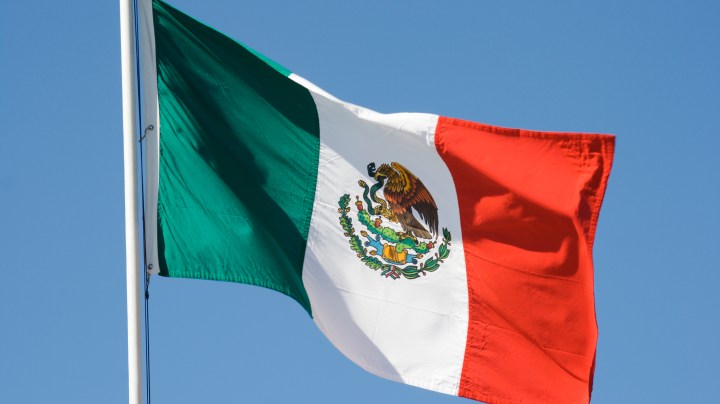Hugo Castro’s Colleague Shares Details On Circumstances Surrounding His Reappearance

Photo by Getty Images
Activist Hugo Castro’s disappearance was connected with his work defending immigrants’ rights, claims advocate Wilner Metelus, echoing earlier comments made by Castro’s partner Gabriela Cortés.
“I don’t have proof to accuse anyone, but we’re talking about Mexico,” Metelus said at a press conference at Mexico City’s Journalists’ Club today. “We know how things are here.”
Metelus provided more details on the events surrounding Castro’s reappearance. He says he and Gabriela Cortés arrived at the Mexico City attorney general’s office on Tuesday morning, where they planned to demand the highway security videos that would hopefully shed some light on Castro’s whereabouts. Castro, a Baja California based immigrant rights activist, had been missing for five days after posting a 20-minute Facebook broadcast on Wednesday, in which he said he feared for his life.
At the time, Castro had announced he was driving a service vehicle en route to linking with Viacrucis Migrante, an annual immigrants’ rights march.
When Metelus arrived at the government office, he said he was initially turned away and was told that Cortés – who, like her partner, is a Border Angels activist — had been sent for psychological tests. When Metelus protested, insisting that he had come to support Cortés, agents apparently changed their mind and waved him into a taxi.
Once inside, Metelus was told they were going to Tlalnepantla — where a taxi driver claimed to have dropped the Baja California activist off at a bus station.
Metelus said no reason was initially given for the destination, but once he was in the taxi, it made a 10 minute stop during which one of the agents received a call that Castro had been found, badly beaten, in the street.
When the taxi arrived in Tlalnepantla, Metelus said he saw Castro being loaded onto a stretcher to be taken to the local Red Cross. The injured activist was accompanied by Cortés.
At the Red Cross, an injured Castro seemed apprehensive and hesitant to talk about what had happened in front of hospital staff and government agents, according to Metelus’ account.
“He had been tortured,” Metelus said. “He had marks on his head, feet, and waist. He couldn’t move, he couldn’t do anything.”
“The defenders of human rights are in a very vulnerable place,” said Cortés the same day. “And because of the activism that Hugo Castro was developing in the northern part of the country, his fight made a lot of noise to those that profit off of [immigrants.]”
Both Castro and Metelus took the opportunity to highlight the crisis that immigrants and refugees are facing in Baja California, with under-funded shelters and a lack of support from the Mexican federal government.
At the Wednesday afternoon press conference, Metelus requested that all relevant security tapes be released and that Castro be relocated to a better-equipped hospital. He encouraged doctors in Mexico to check in for themselves on Castro’s well being, and asked that human rights workers around the world stand in solidarity with Castro and his family
Metelus said he met Castro in 2010 when Metelus, who was born in Haiti and is a Mexico City-based advocate for the rights of Afro-Latino and Caribbean refugees, went to Baja California to attend a conference on Haitian refugees in the area.
“With Hugo I have a debt,” Metelus said. “When I went to Tijuana, Hugo was at my side. This is a huge hit for the struggle in Baja California. I don’t think there’s anyone else like him.”
Regardless of his current delicate state, Metelus was certain Castro would soon resume his work defending immigrants’ rights.
“Hugo is alive and he’s going to continue the struggle with us,” he said.